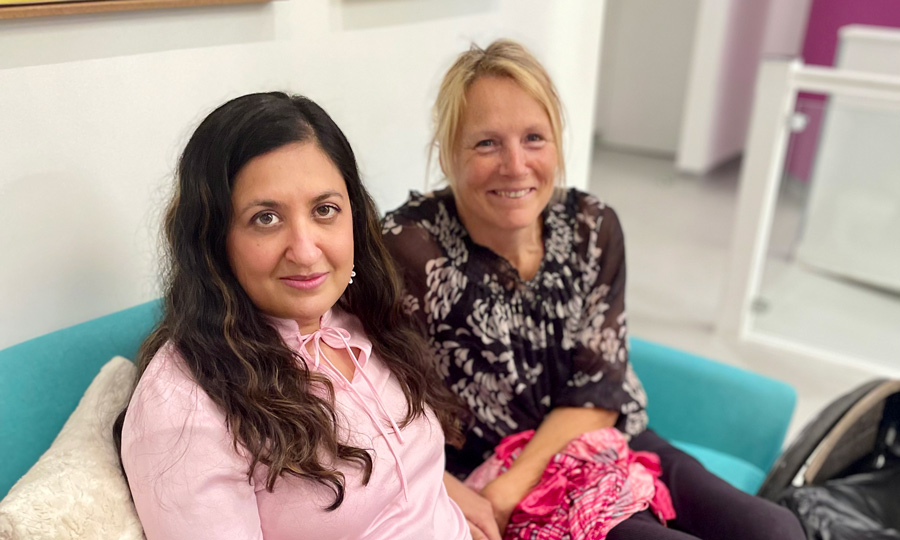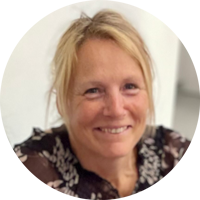An Illustrative Longevity Medicine Case Study With Karen Darke



We are delighted to present to you a case study with British paralympic cyclist, Karen Darke, that will demonstrate an example patient journey using one of our longevity medicine pathways. This very unique insight will hopefully answer a lot of questions about how this area of medicine works both logistically, as well as clinically; providing you with an opportunity to take a peek into what our treatment plans can look like for patients when they come to see us.
In recent years innovative, and forward thinking practitioners, scientists and researchers have begun to shift their focus towards understanding what determines healthy ageing, healthspan, and more importantly, how we can best utilise this new science to change our approach to healthcare. For those new to the longevity space, ‘healthspan’ is a relatively new term, and one that refers to the amount of years in your life where you feel in good health. Our longevity medicine consultations are medically-led by expert doctors that specialise in early detection and prevention of age-related decline; and we use a proactive approach to health instead of the traditional reactive healthcare model.
We hope that by presenting this case study we are able to inspire you to learn more about the importance of longevity medicine, healthspan and taking proactive steps to age well, so that you can find a place for healthy ageing within your own life.
Meet Karen Darke, a British paralympic cyclist, paratriathlete, adventurer and author. Karen began her working life as a geologist in the Bolivian Andes, researching gold, but a life-changing accident left her paralysed from the chest down. She then moved away from being a ‘rock-doctor’ to exploring both outside as well as within. A keen adventure, she has travelled extensively, writing about her adventures for others to enjoy and gain inspiration.
We connected with Karen as she has a keen interest in longevity medicine, and she is specifically interested in helping to find ways to support others that have a spinal cord injury. We are inspired by Karen’s sense of adventure, curiosity and desire to help others.
Karen is very interested in placing the power back with the patient, matching our own philosophy of helping the body to help itself. After a discussion with Karen we learned that she is keen to focus on the longer-term health issues that arise for those with a spinal cord injury. Those that are paralysed will inevitably have health considerations that differ from those without this type of injury. Longevity medicine at its very core is precision-based medicine, that places the individual at the centre. We hope that by addressing longer term health concerns for those that have had a spinal cord injury, that we can begin to show what patients can do using longevity medicine to support their health.
Karen’s case study goals
We will follow Karen’s journey with us as she completes a longevity medicine Comprehensive Consultation pathway which will look to address her current health concerns and symptoms, as well as optimise her health, healthspan and longevity!
“I am excited to be a case study for Harpal Clinic’s holistic approach to healthcare, finding root causes, combining functional and longevity medicine with stress and lifestyle methods. My initial consultation explored my own health, as well as helping me to consider some of the broader issues that can impact us with a spinal cord injury”

Karen Darke

Who?
Female, 53 years old, paralympic athlete
Patient goals
Initial consultation observations
Complaints and concerns
Past History
Current habits
Testing
Doctor’s initial opinion prior to receiving test results
Testing has been ordered by our specialist patient care team, and once results are back, we will review them and adjust Karen’s treatment plan accordingly.
Karen’s test results are back with us, reviewed, and a comprehensive longevity medicine report is finalised by Dr. Harpal Bains.
Hormone blood test results
Gut test results
Nutrient DNA testing results
Please note: These recommendations have been made based on Karen’s individual history, goals and test result. This advice should not be followed by anyone else.
1. Gut health
2. Hormonal support
3. Detoxification and antioxidant pathways
4. Supplementation
5. Inflammation and monitoring
This bespoke plan aims to address identified imbalances and support Karen’s health and longevity goals through targeted interventions.
Karen also had a consultation with Victoria Marshall, our in-house nutritional therapist, who specialises in healthy ageing strategies to support patients in achieving their longevity goals.
Observations
A summary of Karen’s initial nutrition strategy
“Following a DNA nutrient test with the clinic, the team advised me to supplement with glutathione which helps remove toxins from the body – based on my specific gene make-up so not necessarily right for everyone. I am also following recommendations to support my cardiovascular health and gut biome (one month into a three-month pro and prebiotic programme, plus vitamin K and magnesium). I am super happy to say I have not yet suffered a migraine since following this advice, which were previously quite regular. I am feeling somehow ‘clearer and lighter’ in my head and body generally, with sleep and energy levels at a far better quality than I have known for a long time. I am so grateful for this window of relief from previous issues that had been gradually intensifying for some years! Also, this morning I had my once-weekly hard interval training session, and fuelled with more carbs than usual both last night, and with a good breakfast. I got my best power of the year so I am encouraged!"

Karen Darke